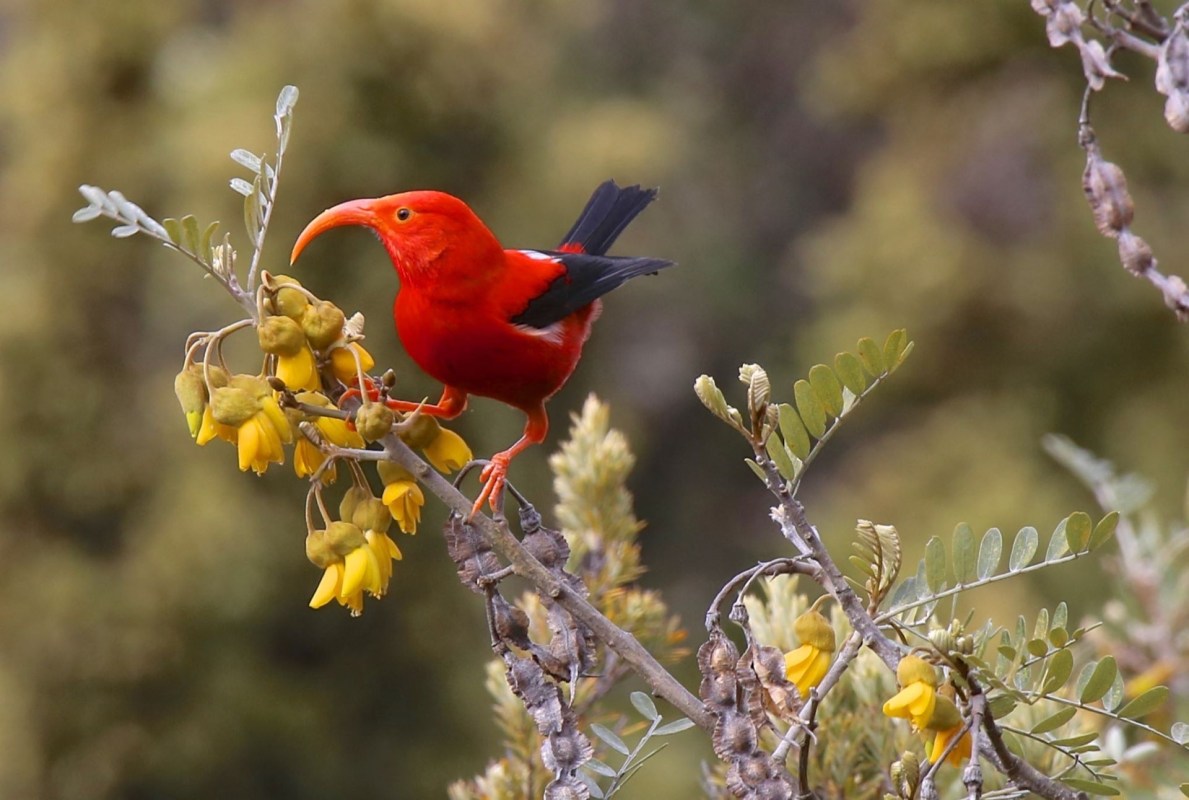Hawaiʻi is set to undertake a historic effort to save its native bird species, which face the threat of extinction due, in large part, to diseases spread by invasive mosquitoes.
Of the 50 species of honeycreeper birds that evolved on the island (without having to contend with mosquitoes and other effects of an increasingly overheating planet), only 17 species remain, per the Audubon Society. Fifteen of those are also classified as federally endangered, and all of them face imminent extinction if drastic measures are not taken.
Luckily, the National Park Service and the Hawaiʻi Department of Land and Natural Resources are ready and willing to take that drastic action. They are set to deploy a conservation tool called "mosquito birth control" to drastically reduce the islands' mosquito population and give the birds a chance at survival.
The reason mosquitoes pose such a threat to these island birds is that they can carry avian malaria, which means they are capable of killing a bird with a single bite. While the birds' mountaintop habitats have historically been too cool for mosquitoes, rising temperatures make that no longer the case.
The mosquito birth control plan would involve inoculating a population of male mosquitoes with a bacteria called Wolbachia, which, when those male mosquitoes mate with female mosquitoes, would render them sterile. The scientists behind the effort say this could reduce mosquito populations by as much as 90%.
Even better, the efforts could have the welcome side effect of helping to prevent mosquito-borne illnesses among humans.
And according to the research, there is very little risk or downside other than the acceptable risk that it doesn't work and money is wasted.
"There is literally almost no risk to the environment, to public safety," said Cynthia King, an entomologist for the Hawaiʻi Department of Land and Natural Resources.
Nobody likes mosquitoes, but efforts to repel them — for example, with pesticides and other chemicals — can often do more harm than good. So, it is highly encouraging that Hawaiʻi seems to have found a solution with few-to-none secondary environmental impacts.
Join our free newsletter for cool news and cool tips that make it easy to help yourself while helping the planet.









